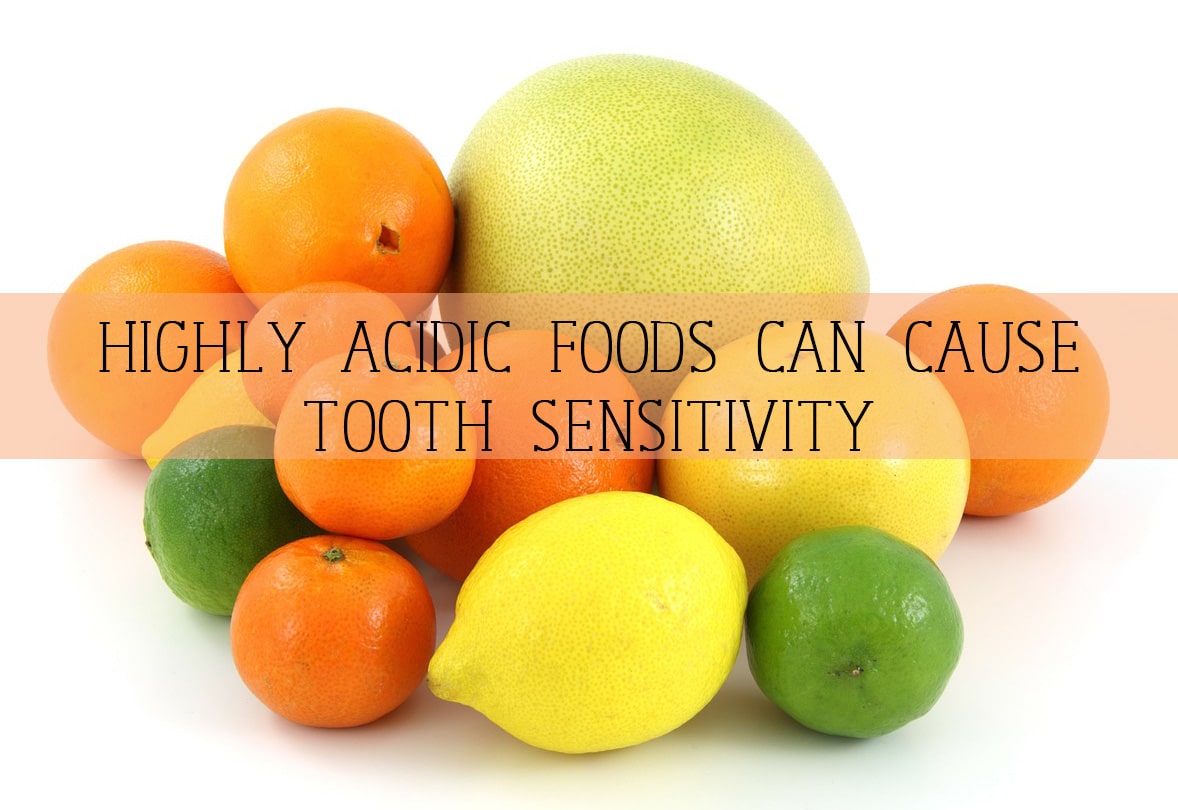Are you experiencing sudden tooth sensitivity? Las Vegas dentists employ a method called differential diagnosis to identify sources of pain, which uses the process of elimination. Here are six possible reasons your teeth are so sensitive.
Diagnosing Tooth Sensitivity
 As your dentist diagnoses the reasons your teeth are so sensitive, more information is helpful. Your dentist might ask you the following questions to determine the cause of your tooth sensitivity. Answer truthfully to get the most accurate diagnosis.
As your dentist diagnoses the reasons your teeth are so sensitive, more information is helpful. Your dentist might ask you the following questions to determine the cause of your tooth sensitivity. Answer truthfully to get the most accurate diagnosis.
- Where are you feeling teeth sensitivity? In one tooth, or several?
- How long have you experienced this?
- How often do you brush and floss?
- When was your last dental visit?
- Were you recently hit or struck in the teeth or jaw?
Why Are Teeth Sensitive?
Believe it or not, teeth are living structures and they can be damaged just like any other part of your body. There are also nerves within your teeth, and these can become painful if they are exposed.
The exterior of your teeth is covered with enamel, which is not living and cannot heal itself when it’s damaged. Beneath that is a layer of dentin, which can restore itself like your skin or bones. Inside the dentin are tiny tubules which lead to nerves deeper inside the tooth. If your dentin is damaged, this can expose the nerves through the tubules, creating sensitivity to heat and cold. If your tooth is cracked, you have a cavity, or other damage, this will also irritate the nerve. Finally, inflammation can cause your gums to pull away from your teeth, which will also expose the dentin underneath, and expose the nerves through the tubules. There are many reasons why your teeth might be sensitive, and resolving the issue is easier with more information.
6 Reasons Your Teeth Are So Sensitive
1. Damaged tooth
If your tooth sensitivity is associated with just one tooth, the tooth might be damaged or decayed. This can happen in a number of ways, including all of the following:
- A dental cavity
- Cracked tooth due to impact
- Broken or leaky filling
- Advanced tooth decay eroding the tooth’s dentin
- Tooth infection
- Damaged tooth root
With sensitivity to heat and cold, you might also have varying levels of pain if your teeth are damaged. With a minor dental cavity, for example, you may feel only a bit of pain, as well as sensitivity. However, a cracked tooth will cause intense, stabbing pain, since the nerve will be more exposed.
If your teeth are damaged, your dentist can restore them. A root canal can repair a damaged tooth root, for example, and a filling can restore a tooth with a cavity. If your tooth is damaged due to impact, infection, or tooth decay, visit your dentist as soon as possible.
If you are experiencing intense pain and you need emergency dental care in the greater Las Vegas area, we can help. Contact us for emergency dental care.
2. Too Much Acidic Food

Eating these foods as a part of a balanced diet will not erode your tooth enamel. Some foods are acidic and others are basic, so eating a variety of foods will level out the overall acidity. However, if you enjoy a particular food or drink multiple times a day, it can cause problems. Drink water when you enjoy these foods or drinks so you can wash away the acids, instead of leaving them on your teeth.
3. Stress and Teeth Grinding
A sudden increase in stress could be the cause of sensitivity. Stress causes an increase in cortisol levels, which can cause involuntary teeth grinding, leading to tooth sensitivity throughout the mouth.
Bruxism, also called teeth grinding, can occur at night while you’re sleeping or during the daytime. Either way, you probably won’t notice that you’re doing this. In addition to tooth sensitivity, you might also notice soreness in your jaw when you wake up, or throughout the day. The best way to resolve this cause of tooth sensitivity is to resolve the cause of the stress. If you’re not sure what is causing you stress, or the problem will resolve itself in time, you might also try using a mouthguard to prevent damage to your teeth.
4. Sinus Infections
Your sinuses sit right above your top teeth. This means pressure, bacteria, and inflammation in your sinuses can also hurt your teeth. A sinus infection in either your left or right sinus, or even both sides, can cause tooth sensitivity on that side. The teeth can also be very sensitive to sudden movement, such as standing up or walking.
A cold or flu can create a sinus infection. If you’ve recently been sick and the pain in your sinuses never went away, you may have a sinus infection. This condition might clear in time, or you can see your doctor for medication. In the meantime, use over-the-counter painkillers to reduce the pain in your sinuses and sensitivity in your teeth.
5. Gums Receding
If your tooth enamel is damaged, it can expose the dentin and nerves in the teeth. But your teeth roots are not protected by enamel. Instead, your gums protect the dentin around your teeth roots. If your gums pull away from your teeth, it will expose your dentin and cause tooth sensitivity.
In many cases, your gums may start to recede as you age. However, other factors can cause this to happen prematurely. If your gums are inflamed from bacteria, they will start to pull away from your teeth. Flossing regularly can correct this problem. Brushing your teeth too hard can also cause your gums to recede. If you notice that your gums have receded in only one area, you may be brushing too hard in this area. We tend to start brushing at the same spot, and we tend to brush harder in this area. When you brush your teeth, notice your habits and try to start in a different place, and use lighter pressure.
6. Whitening Your Teeth
For teeth whitening products to work, they have to penetrate the tooth enamel. The bleaching agents in these products, usually peroxide, are designed to move through tooth enamel, into the dentin, and oxidize to lighten the color. This process makes tooth enamel and the tubules in the dentin more vulnerable, causing a unique type of tooth sensitivity. Tooth sensitivity from teeth whitening products is generally temporary, and will go away on its own when you stop using the teeth whitening products. To avoid damage to your teeth when using these products, avoid eating or drinking sugary beverages immediately after. Drink lukewarm water instead to rinse the teeth and let the effects of the peroxide wear off.
If you’re not sure about the reasons for your tooth sensitivity and it’s causing your problems day-to-day, visit your dentist. Monitor your tooth sensitivity and see if it gets better or worse with time. Remember the questions at the top and try to answer them as well as you can. This might help you diagnose your cause of tooth sensitivity yourself, or it will help your dentist.
If the problem doesn’t go away or gets worse, schedule an appointment with BDG today at (702) 388-8888.
